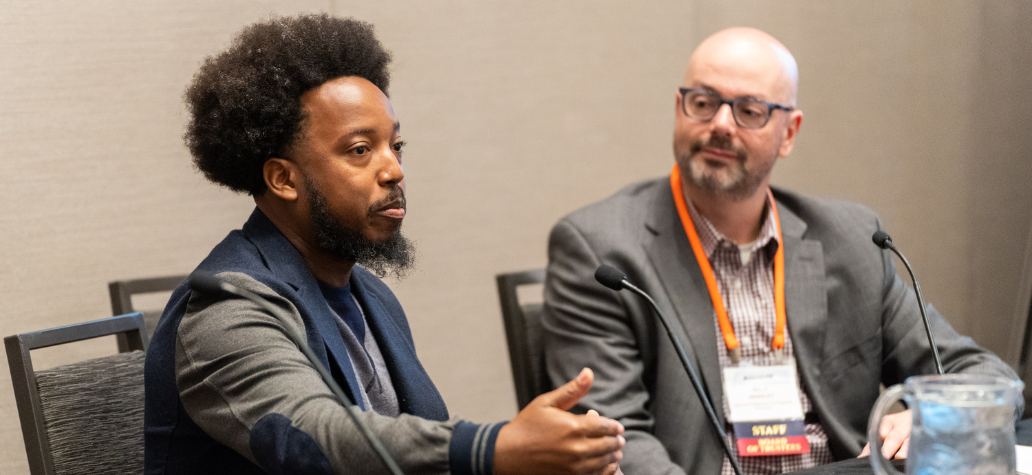Throughout Financial Capability Month, we are publishing an initial overview from our inaugural Financial Education Innovation & Impact Summit.
NEFE has always championed quality financial education. Our mission and research revolve around learning and sharing best practices for what constitutes financial education of quality. Financial education without consideration of quality could result in unintentional misinformation and possibly harm. We continue to evolve our understanding of what quality financial education means and recently expanded that definition to embrace equity and inclusion. Is quality financial education adjusting and adapting for cultural, economic, racial, and geographic considerations? Is the field adapting to non-traditional methods of pedagogy and responding to how information is being consumed by learners?
Aligning with the earlier introduced track sessions on access at the inaugural Financial Education Innovation & Impact Summit, the next important theme to highlight as a session track was quality. Once an individual has access to financial education, we must ensure it is of quality. The sessions in this track were thoughtfully constructed to push the audience to consider different perspectives and definitions of quality and explore solutions and actions.
The quality session track started with a powerful conversation by Emile Washington, chief operation officer at BlackFem, exploring the ways in which financial education may be rooted in racism and how the industry can address these historical challenges moving forward. Additional panels included:
- Examples of culturally responsive financial education being offered by the FLY Initiative and Oweesta Corporation, and what can be learned from this work.
- Representatives from Utah and Tennessee examined state financial education legislation and whether it is effective for all populations and explored how the two states managed different stages of adoption and implementation.
- The Consumer Financial Protection Bureau shared their Five Principles of Effective Financial Education and how these can be applied to create a more diverse, inclusive, and accessible financial education environment.
- Another session explored the effects of complex terminology on investment knowledge, particularly among women and respondents from minority backgrounds. Lessons to reduce complexity were shared and what the greater field can learn from this work.
NEFE will continue to highlight these sessions and future conversations and how we make financial education accessible, of quality, and impactful. We will continue to advocate for quality financial education to work for all backgrounds and people. Our 2022 visiting scholar, Chloe McKenzie, challenged the field to rethink our work and how financial shame and trauma impact financial education and overall financial well-being. We will soon announce our 2023 thought leadership visiting scholar and are thrilled to provide a platform for important voices to expand our knowledge of quality financial education for all means. The focus on quality as a track session during the Summit will continue to be a cornerstone of NEFE’s work for years to come.


